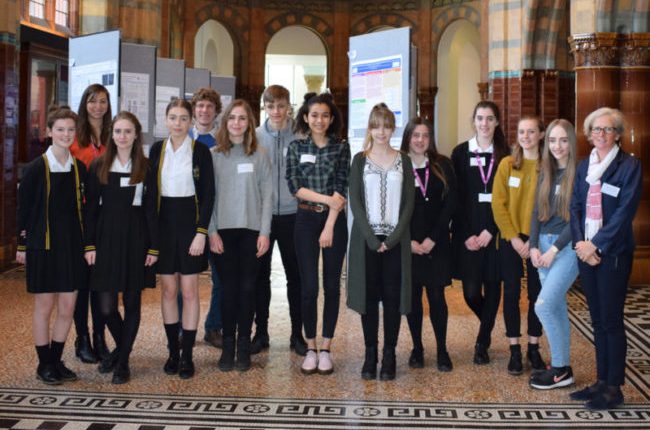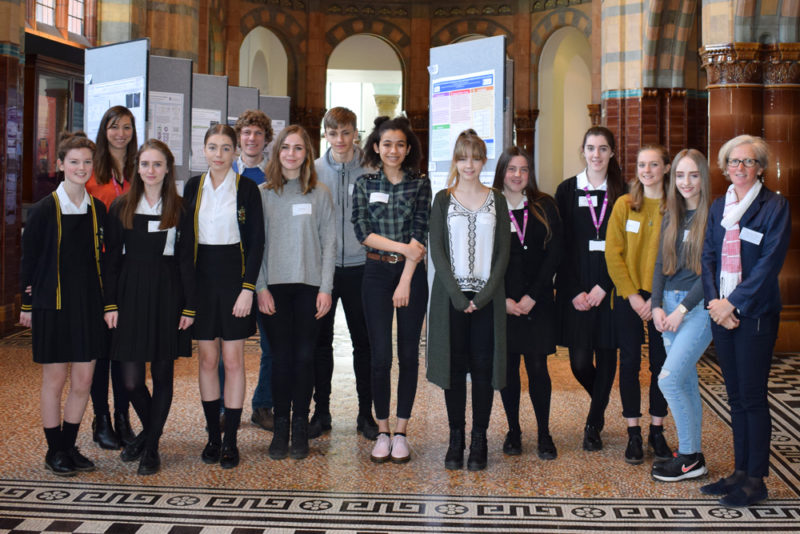
North West Cancer Research offers sixth form students insight into careers in vital research
12 Liverpool sixth form students were invited as special guests to this year’s Annual Scientific Symposium held by the North West Cancer Research Centre at the University of Liverpool

Science students from schools across Liverpool gained an invaluable insight into careers in cancer research after hearing from some of the UK’s leading scientists.
12 sixth form students were invited as special guests to this year’s Annual Scientific Symposium held by the North West Cancer Research Centre at the University of Liverpool, thanks to funding from the Wellcome Trust.
The students from Calderstones School, North Liverpool Academy, Notre Dame Catholic College and Archbishop Blanch School, heard from a programme of top speakers, all leaders in their fields of cancer research from the Universities of Bangor, Dundee, Glasgow, Liverpool, Lancaster, and Southampton.
They also took a behind the scenes look at the world-class research labs at the University of Liverpool, as well as the university’s sports facilities, linking the science with healthy lifestyles.
A photography competition was the highlight of the day, with the pupils judging entries from scientists and researchers under the theme the ‘Magic of Science’.
Director of the North West Cancer Research Centre, Professor Sarah Coupland invited the students, as part of the Centre’s aims to widen its participation with secondary school biology students, in order to introduce them to a career in scientific research.
Professor Coupland said: “Thanks to funding from the Wellcome Trust Public Engagement Grants Scheme, we were able to invite 12 of the brightest young students from the region to our symposium.
“We hope they all enjoyed hearing about the work currently underway and left the day with a better understanding of what scientists do and, more specifically, the role they have to play in the development of cancer research and treatments.”
